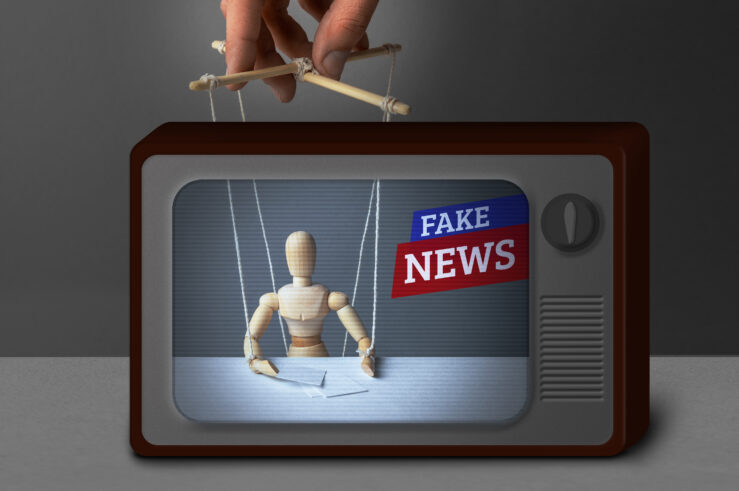Showing results for: “Google shopping manne”
Twitter v. Taamneh: Intermediary Liability, The First Amendment, and Section 230
After the oral arguments in Twitter v. Taamneh, Geoffrey Manne, Kristian Stout, and I spilled a lot of ink thinking through the law & economics of intermediary liability and how to draw lines when it comes to social-media companies’ responsibility to prevent online harms stemming from illegal conduct on their platforms. With the Supreme Court’s recent decision in Twitter v. Taamneh, ... Twitter v. Taamneh: Intermediary Liability, The First Amendment, and Section 230
UK Blocking of Microsoft-Activision Merger Is Anticompetitive and Anti-Innovation
The United Kingdom’s Competition and Markets Authority (CMA) late last month moved to block Microsoft’s proposed vertical acquisition of Activision Blizzard, a video-game developer that creates and publishes games such as Call of Duty, World of Warcraft, Diablo, and Overwatch. Microsoft summarized this transaction’s substantial benefits to video game players in its January 2022 press release announcing the proposed merger. The ... UK Blocking of Microsoft-Activision Merger Is Anticompetitive and Anti-Innovation
Artificial Intelligence Meets Organic Folly
In a May 3 op-ed in The New York Times, Federal Trade Commission (FTC) Chair Lina Khan declares that “We Must Regulate A.I. Here’s How.” I’m concerned after reading it that I missed both the regulatory issue and the “here’s how” part, although she does tell us that “enforcers and regulators must be vigilant.” Indeed, ... Artificial Intelligence Meets Organic Folly
If Necessity Is the Mother of Invention, New EU SEP Rules Are Decidedly Unnecessary
An unofficial version of the EU’s anticipated regulatory proposal on standard essential patents (SEPs), along with a related impact assessment, was leaked earlier this month, generating reactions that range from disquiet to disbelief (but mostly disbelief). Our friend Igor Nikolic wrote about it here on Truth on the Market, and we share his his concern that: As it currently stands, it appears the regulation will ... If Necessity Is the Mother of Invention, New EU SEP Rules Are Decidedly Unnecessary
Biweekly FTC Roundup: But Wait, There’s More Edition
More, and not just about noncompetes, but first, yes (mea culpa/s’lach lanu), more about noncompetes. Yesterday on Truth on the Market, I provided an overview of comments filed by the International Center for Law & Economics on the Federal Trade Commission’s (FTC) proposed noncompete rule. In addition to ICLE’s Geoffrey Manne, Dirk Auer, Brian Albrecht, Gus Hurwitz, and ... Biweekly FTC Roundup: But Wait, There’s More Edition
Digital-Market Regulation: One Size Does Not Fit All
Regulators around the globe are scrambling for a silver bullet to “tame” tech companies. Whether it’s the United States, the United Kingdom, Australia, South Africa, or Canada, the animating rationale behind such efforts is that firms like Google, Apple, Meta, and Amazon (GAMA) engage in undesirable market conduct that falls beyond the narrow purview of antitrust law (here and here). To tackle these supposed ... Digital-Market Regulation: One Size Does Not Fit All
Biweekly FTC Roundup: Antitrust Woodstock Edition
Last week’s roundup was postponed because I was kibbitzing at the spring meeting of the American Bar Association (ABA) Antitrust Section. For those outside the antitrust world, the spring meeting is the annual antitrust version of Woodstock. For those inside the antitrust world: Antitrust Woodstock is not really a thing. At the planetary-orbit level, the ... Biweekly FTC Roundup: Antitrust Woodstock Edition
Reining in Digital Competition to No Good End: Will AICOA and OAMA Rise from the Grave?
The 117th Congress closed out without a floor vote on either of the major pieces of antitrust legislation introduced in both chambers: the American Innovation and Choice Online Act (AICOA) and the Open Apps Market Act (OAMA). But it was evident at yesterday’s hearing of the Senate Judiciary Committee’s antitrust subcommittee that at least some ... Reining in Digital Competition to No Good End: Will AICOA and OAMA Rise from the Grave?
Twitter v. Taamneh and the Law & Economics of Intermediary Liability
The Senate Judiciary Committee’s Subcommittee on Privacy, Technology, and the Law will host a hearing this afternoon on Gonzalez v. Google, one of two terrorism-related cases currently before the U.S. Supreme Court that implicate Section 230 of the Communications Decency Act of 1996. We’ve written before about how the Court might and should rule in ... Twitter v. Taamneh and the Law & Economics of Intermediary Liability
How Will the Law Deal with AI Getting Facts Wrong?
It seems that large language models (LLMs) are all the rage right now, from Bing’s announcement that it plans to integrate the ChatGPT technology into its search engine to Google’s announcement of its own LLM called “Bard” to Meta’s recent introduction of its Large Language Model Meta AI, or “LLaMA.” Each of these LLMs use artificial intelligence ... How Will the Law Deal with AI Getting Facts Wrong?
Killer Acquisition or Leveling Up: The Use of Mergers to Enter Adjacent Markets
In the world of video games, the process by which players train themselves or their characters in order to overcome a difficult “boss battle” is called “leveling up.” I find that the phrase also serves as a useful metaphor in the context of corporate mergers. Here, “leveling up” can be thought of as acquiring another ... Killer Acquisition or Leveling Up: The Use of Mergers to Enter Adjacent Markets
A Few Questions (and Even Fewer Answers) About What Artificial Intelligence Will Mean for Copyright
Not only have digital-image generators like Stable Diffusion, DALL-E, and Midjourney—which make use of deep-learning models and other artificial-intelligence (AI) systems—created some incredible (and sometimes creepy – see above) visual art, but they’ve engendered a good deal of controversy, as well. Human artists have banded together as part of a fledgling anti-AI campaign; lawsuits have ... A Few Questions (and Even Fewer Answers) About What Artificial Intelligence Will Mean for Copyright










